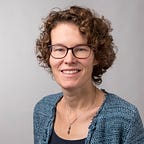Justice at the Heart of the Social Contract
The uncertainty caused by the pandemic makes it hard for most of us to plan ahead. Yet the global community has asked the Secretary-General of the United Nations to do just that. They have asked him to chart the course and present a Common Agenda for the coming years and even decades.
The reflection on this common agenda is still underway, but the SG’s call for new social contracts is bound to be central to the recommendations he will present in September 2021.
Today, sixteen ministers came together to unite behind a call to put people at the center of justice. In their joint letter to the Secretary-General, they agreed that it is necessary to rethink the social contract and the fundamentals of our societies: By embracing people-centered justice, we can reduce inequality and exclusion, reduce all forms of violence, revive the social contract and rebuild trust.
Joint letter on the UN Common Agenda
In the UN75 Declaration, member states asked the UN Secretary-General António Guterres to develop recommendations to advance our Common Agenda and to respond to current and future challenges.
One of the central components of this Common Agenda, is bound to be the ‘new social contract for a new era’, that the Secretary-General has called for in response to the inequality and injustices exposed by the pandemic.
The host of the meeting today, Minister Sigrid Kaag of the Netherlands said in her opening remarks that we should ‘reclaim the space to make a difference’.
The meeting focused on reimagined social contracts that put people at the center of justice and people-centered justice at the core of our reset and recovery efforts.
In the letter countries emphasize that they believe that transforming justice, by putting people at the center, is key to reviving the bonds that hold our societies together, and to re-establishing trust between people and communities, and governments.
The principles of people-centered justice
The principles of people-centered justice were first put forward in The Hague Declaration, the Buenos Aires Declaration and the Joint Action Plan of the g7+ countries, and have been endorsed by 40 countries. They are based on the work of the Task Force on Justice and the Justice for All report provides both explanation of the key concepts and data and evidence to underpin the principles.
These are the principles of people-centered justice included in the letter:
Specific asks to the UN Secretary-General
In response to the SG’s request for inputs for the Common Agenda, the 16 governments ask the UN Secretary-General:
- Firstly, to include the principles on people-centered justice in the UN Common Agenda and to base the Common Agenda on a vision of justice where no one is left behind.
- Member States also ask the Secretary-General to identify justice as a guiding principle for the economic recovery and the societal reset.
- Tying it back to the achievement of SDG16, the countries ask the SG to raise our collective ambitions to achieve the goal of providing equal access to justice for all by 2030.
Member states emphasize that they stand ready to support the Secretary-General and the United Nations in these endeavors.
Justice Action Coalition
In the letter the countries also commit themselves to take action and expressed the intention to work closer together. They write that they will contribute to building peaceful, just and inclusive societies in various ways, including through a justice action coalition that will serve as a platform where justice actors can exchange experiences.
The Justice Action Coalition will promote people-centered justice domestically and internationally, mobilize political and financial support for Justice for All, join forces to influence international strategies and priorities, and set out a common research agenda for people-centered justice. It will be formally launched in the course of 2021.
The countries aim to forge new partnerships and strengthen collaboration across borders. The Justice Action Coalition will be the docking station for this work.
The meeting was organized by the Ministry of Foreign Affairs of the Kingdom of the Netherlands, the g7+ secretariat, The Elders, and the Pathfinders for Peaceful, Just and Inclusive Societies. It was held virtually on April 14, 2021. For more information, please see: www.justice.sdg16.plus/ministerial
